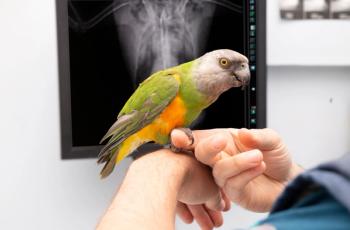
Mind Over Miller: Are we too specialized? Part 2: Veterinary medicine
Dr. Miller examines how the trend toward specialization is affecting veterinary practice.
Last month, I described my concern with the trend toward specialization in human medicine and the diminishing role of the family physician. Of course I understand that the ever-increasing complexity of medical technology necessitates specialists and superspecialists.
Robert M. Miller, DVM
I recently learned that 65% of the senior class in one of our veterinary schools plans to do a residency.
As I said last month, if it were up to me, I would not let any doctor, medical or veterinary, take a residency unless he or she has had a minimum of two years of general practice experience beforehand.
I know the arguments—too expensive, too many years before the specialty income comes in. Well, that's too bad. Most of us sacrifice to become veterinarians, and most of us love our profession and would do it all over again.
In last month's column, I presented three reasons general practice should be a requirement before a medical residency is commenced. The same reasoning applies to veterinary students.
1. The young doctor would learn whether he or she has both an affinity and a talent for the specialty. One of our practice's interns took a food-animal track in school, but once he experienced our very mixed-animal practice, he decided that he really liked small-animal emergency medicine, and that's what he did after he left us. Another intern had absolutely no interest in large-animal practice, yet he ended up doing equine practice after he left.
2. The new graduate would probably look for a well-paying job to help pay off the horrendous debt a veterinary student incurs today. This would bring more general practitioners into marginal areas. We all know of the serious shortage of food-animal practitioners that exists today.
3. A mandatory general practice internship would provide an excellent foundation for a later specialty.
This brings me to another problem: Recently, I have seen letters to the editor in veterinary journals from students protesting the present and traditional all-species approach to our education. Worse, I have seen letters from specialists and educators agreeing with this argument.
If we go to a species-oriented education such as small animal, food animal, or equine, we will divorce American veterinary medicine from the profession internationally.
Ours is a uniquely versatile profession. During the great Venezuelan equine encephalomyelitis epidemic, small-animal practitioners were out there vaccinating horses. During our nation's wars, veterinarians served by doing whatever was needed—caring for dogs, caring for mules, inspecting food.
When disaster occurs anywhere in the world, veterinarians come forth to rescue pets, treat livestock, and do whatever is necessary. Nobody knows what the future holds—famine, revolt, flood, storm, drought, epidemic, or nuclear war. Our profession has always filled the need.
A degree in veterinary medicine should prepare us for general practice. I'd like to see a mandatory internship. Then, after having tasted a bit of it all, we can select a species or a medical specialty and take postgraduate training in it or do self education through continuing education or apprenticeship.
Too long? Too costly? Choose another profession!
The best veterinary radiologist I ever used was the late Dr. Bill Zontine. He took his residency after 20 years of mixed-animal practice. The best clinician I ever referred oncology patients to in practice was Dr. Alice Villalobos. She practiced general small-animal medicine throughout her career while learning all she could about oncology.
Yes, we need specialists and superspecialists. But, like human medicine, we need frontline troops—versatile, hard-working, dedicated practitioners who know when to refer a case to a specialist and who is best qualified to see it.
Robert M. Miller, DVM, is an author and a cartoonist, speaker, and Veterinary Medicine Practitioner Advisory Board member from Thousand Oaks, Calif. His thoughts in "Mind Over Miller" are drawn from 32 years as a mixed-animal practitioner. Visit his website at
Newsletter
From exam room tips to practice management insights, get trusted veterinary news delivered straight to your inbox—subscribe to dvm360.




